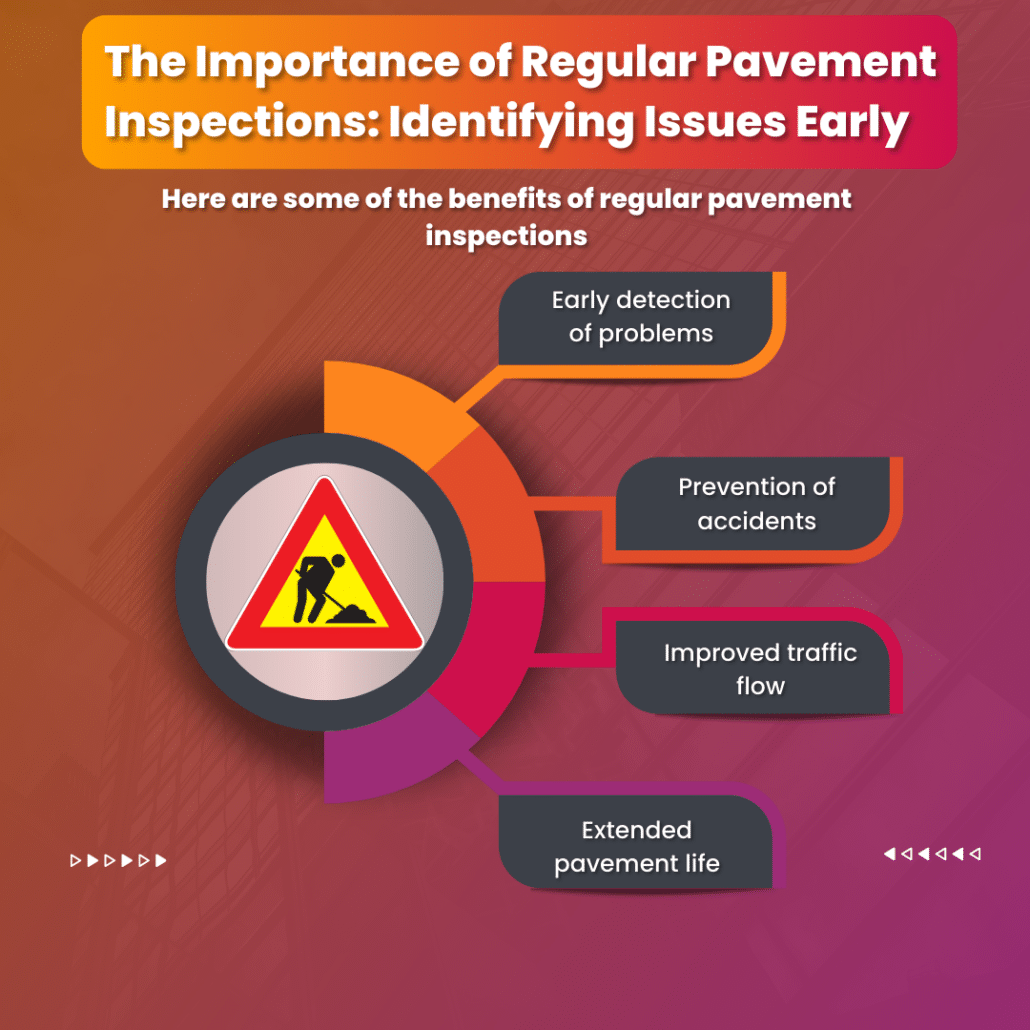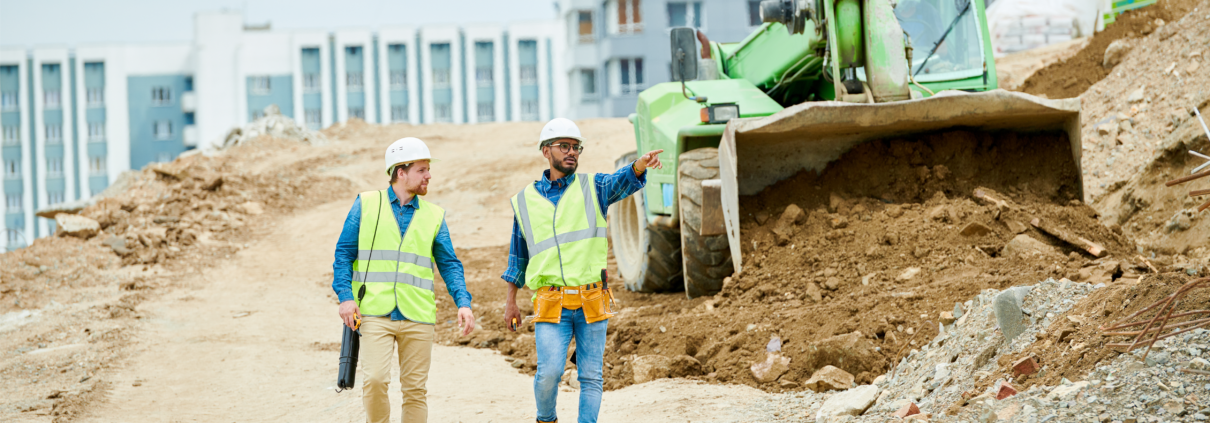The Importance of Regular Pavement Inspections: Identifying Issues Early
Pavements are essential for the safe and efficient movement of people and goods. However, they are also subject to wear and tear from traffic, weather, and other factors. Regular pavement inspections can help identify problems early, before they become major repairs. This can save property owners time and money in the long run.
Here are some of the benefits of regular pavement inspections:
- Early detection of problems. Pavement inspections can identify problems before they become major repairs. This can save property owners time and money in the long run.
- Prevention of accidents. Cracked and uneven pavements can be a hazard, increasing the risk of accidents. Regular inspections can help identify and repair these problems before they cause an accident.
- Improved traffic flow. Smooth, well-maintained pavements allow traffic to flow more smoothly, reducing congestion and improving safety.
- Extended pavement life. Regular maintenance and repairs can help extend the life of pavements, saving property owners money in the long run.

How often should pavements be inspected?
The frequency of pavement inspections depends on a number of factors, including the type of pavement, the amount of traffic it receives, and the climate. For example, pavements in areas with heavy traffic or harsh weather conditions may need to be inspected more often than pavements in areas with less traffic and milder weather.
What should be included in a pavement inspection?
A comprehensive pavement inspection should include an assessment of the following:
- Surface condition: The inspector should look for cracks, potholes, rutting, and other signs of damage.
- Subgrade condition: The subgrade is the layer of material beneath the pavement. The inspector should check for signs of subgrade settlement or erosion.
- Drainage: Pavement drainage is important for preventing water damage. The inspector should check for clogged or damaged drainage systems.
- Joints and seams: Pavement joints and seams should be inspected for cracks, gaps, and other problems.
- Other features: The inspector should also check for other features on the pavement, such as markings, signs, and lighting.
What can be done to address pavement problems?
Once problems have been identified, they can be addressed in a number of ways. Minor problems, such as cracks or potholes, can often be repaired quickly and easily. More serious problems, such as subgrade settlement or erosion, may require more extensive repairs or even replacement of the pavement.
How can I find a qualified pavement inspector?
There are a number of qualified pavement inspectors available. To find a qualified inspector, you can contact your local government or a professional association. When choosing an inspector, it is important to get someone who has experience with the type of pavement you have and the climate in your area.
Why Pacific Construction & Surface?
Pacific Construction & Surface is a leading provider of pavement maintenance and repair services. We have over 20 years of experience and a team of experienced professionals who are dedicated to providing our customers with the best possible service. We offer a wide range of services, including pavement inspections, crack sealing, pothole repair, and asphalt paving. We also offer a comprehensive warranty on all of our work.
If you are looking for a qualified and experienced pavement contractor, please contact Pacific Construction & Surface. We would be happy to discuss your needs and provide you with a free estimate.
Contact us today to schedule a pavement inspection!

